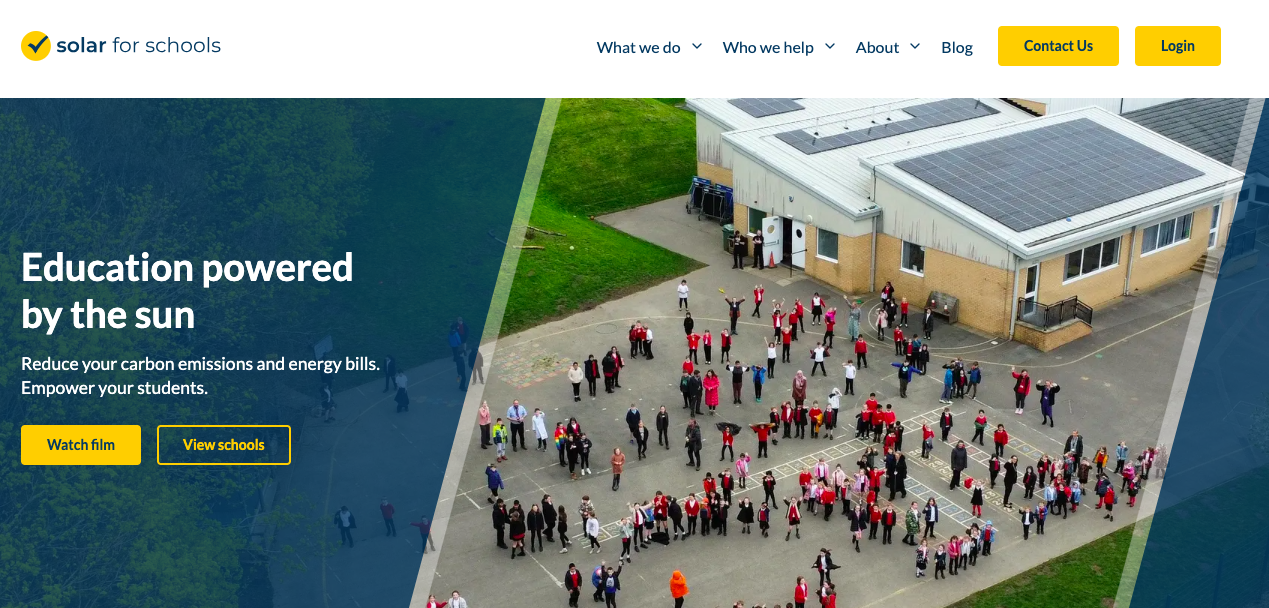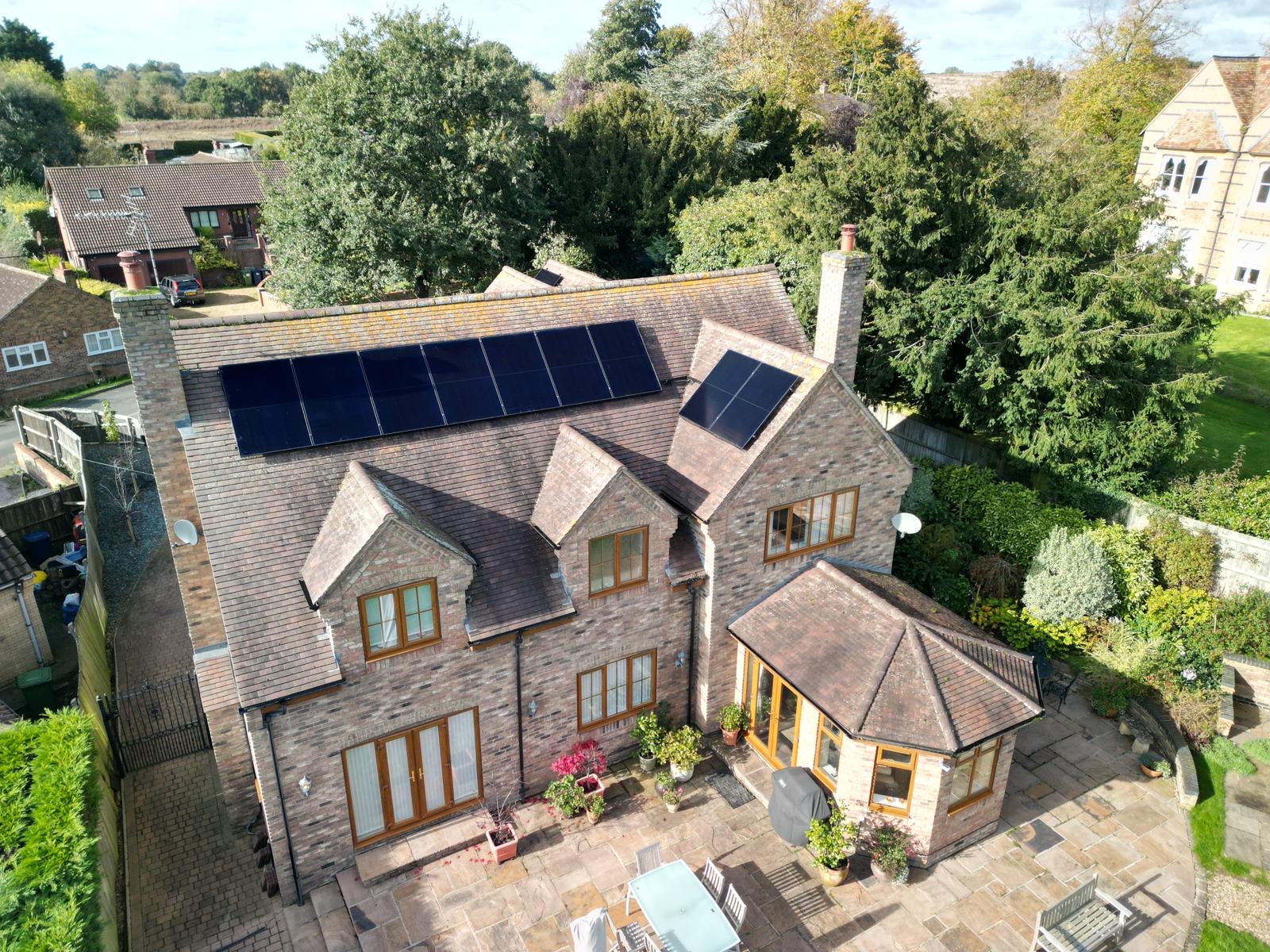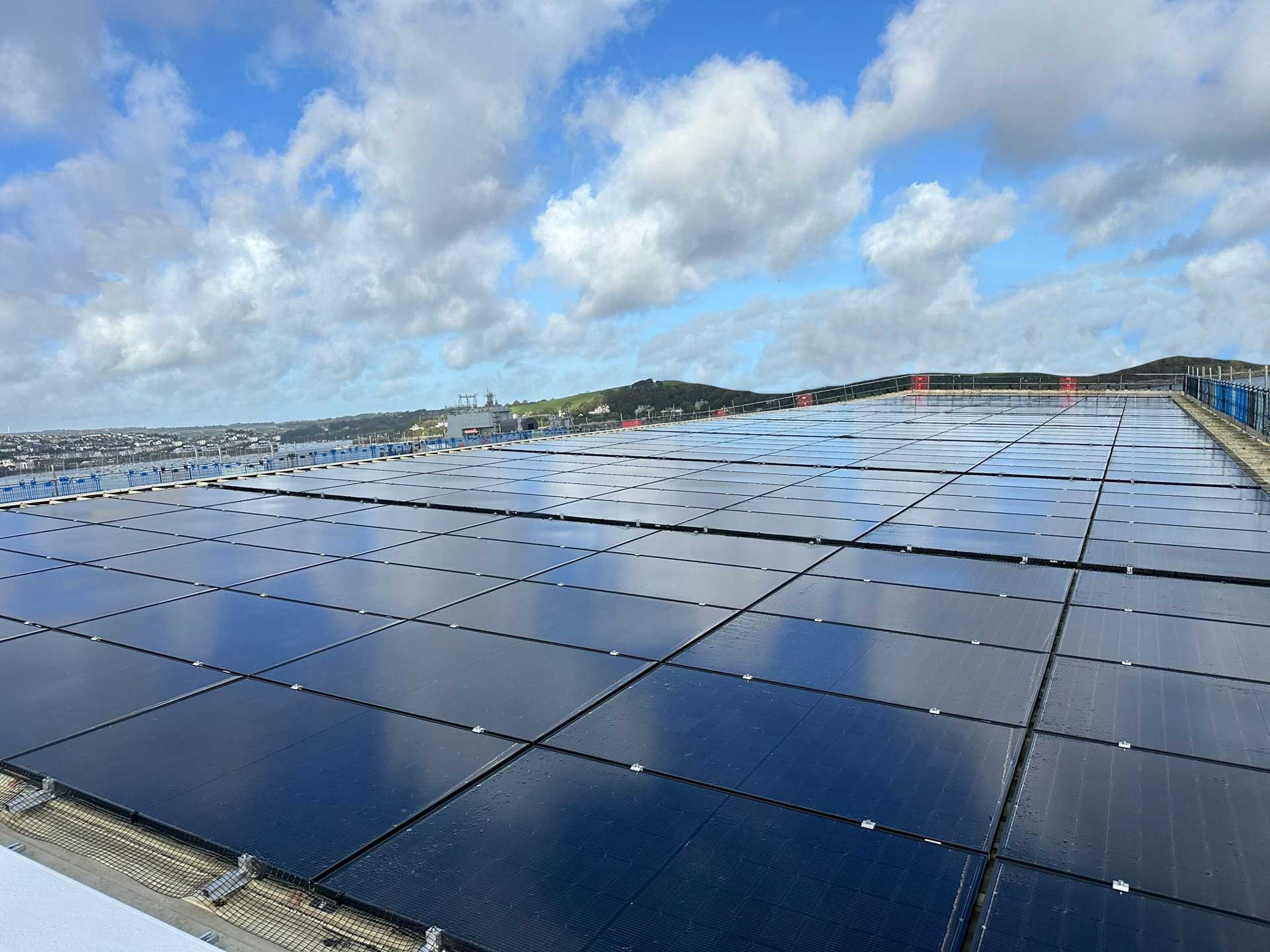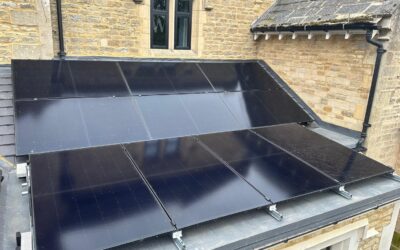Solar Grants in the UK: A Comprehensive Guide to Funding for Renewable Energy
While solar technology offers long-term savings and environmental benefits, the initial cost of installation can be a barrier. This article explores the key grants and funding options available in the UK, tailored to meet the needs of schools, farming operations, businesses, community projects, and domestic properties.
UK Government Support for Solar
The UK has set ambitious targets to reduce carbon emissions and transition to a more sustainable, renewable energy-based future, and has a number of grant pots to support this transition. Renewable energy sources like solar panels play a critical role in reducing dependence on fossil fuels, lowering energy costs, and promoting energy independence across the nation. Solar energy, in particular, offers a clean, reliable solution that can be harnessed at every level—from individual homes to schools, businesses, farms, and entire communities. Government grants and funding programmes are making solar power accessible to a wide range of sectors. By providing financial support and incentives, these programmes help more people and organisations afford the shift to solar, promoting a cleaner, greener future. In this article:
- Nationwide Solar Grants
- Solar Grants for Schools
- Solar Grants for Farming and Agriculture
- Solar Grants for Businesses
- Solar Grants for Domestic Properties
- Solar Grants for Community Projects
- Solar Grants for Housing Associations
- Green Loans
- Complimentary Bid Writing Support
1. Nationwide Solar Grants
- Summary of national funding: https://businessclimatehub.uk/finance-and-support-across-the-uk/

Solar for schools screenshot of webpage November 2024
2. Solar Grants for Schools
For schools there are three main Government grant pots: (a) CIF (Condition Improvement Fund) The CIF is an annual fund for academies and sixth-form colleges in England, supporting essential building repairs and upgrades, including health, safety, and energy efficiency projects. Key dates
- CIF 2025/26: Open
- Registration Deadline: 10 December 2024, 12 noon
- Application Deadline: 17 December 2024, 12 noon
- Outcomes: Expected to be announced in Spring 2025
(b) SCA (School Condition Allocations) SCA provides annual funding to larger multi-academy trusts, local authorities, and voluntary-aided bodies to maintain and improve school buildings, covering essential repairs and refurbishment. Eligibility criteria:
- Trusts with 5 or more open academies at the start of September 2019.
- Those open academies (or their predecessor schools) had at least 3,000 pupils counted in the spring 2019 census.
(c) Public Sector Decarbonisation Scheme (PSDS) and Public Sector Low Carbon Skills Fund (LCSF) PSDS funds projects that reduce carbon emissions in public sector buildings, such as installing energy-efficient systems and renewable energy. LCSF supports organisations in developing expertise and plans for decarbonisation projects. Key dates
- Phase 4 application round: Open 9 October 2024
- Applications close: 25 November 2024
Solar funding routes for schools also include cooperative models where the funding is provided by investors or the community, meaning that schools can get solar panels installed at zero/minimal cost.
- Schools’ Energy Co-operative (SEC): Provides solar PV installations with no upfront costs, funded by cooperative investments.
- Solar for Schools: As above, funded by coopertive investments, where schools can contribute nothing and get cheaper energy or contribute financially and part or wholly own the solar to reap more ongoing financial reward.
- Community Energy Funds: There are often local funding options that support school solar installations. In Northamtonshire for instance, there is a Community Fund of up to £5000 which opens twice a year.
3. Solar Grants for Farming and Agriculture
Solar energy offers farms a sustainable way to reduce operating costs, lower carbon footprints, and support environmentally friendly practices. Here are key grants and funding options for agricultural solar projects:
- Countryside Stewardship Scheme: Provides support for farms implementing on-site renewable energy, helping to cover costs for solar installations.
- Renewable Heat Incentive (RHI): Supports farms installing solar thermal systems for heating, providing ongoing payments based on heat output.
- Agricultural Power Purchase Agreements (PPAs): Allow solar panels to be installed at no upfront cost, with farms purchasing electricity at a discounted rate.
- [WITHDRAWN] Rural Community Energy Fund (RCEF): This grant previously offered grants for renewable energy projects in rural areas, ideal for farms aiming to improve energy independence. We are still waiting for a replacement scheme.
Application Tips: Farmers should assess their energy usage, optimise panel placements for maximum sun exposure, and prepare necessary documentation, including energy audits and cost-benefit analyses, to strengthen their applications.
4. Solar Grants for Businesses
Businesses of all sizes are increasingly adopting solar energy to cut operational costs and strengthen sustainability credentials. Read more about commercial solar panel installations, or explore below some key funding options for businesses seeking to go solar:
- Salix Finance: Provides interest-free loans to public sector businesses for energy efficiency projects, including solar installations.
- Energy Company Obligation (ECO4): Allows eligible small businesses to access funding from energy suppliers to support solar installations.
- Power Purchase Agreements (PPAs): Enable businesses to install solar panels without upfront costs, with the option to purchase generated electricity at a reduced rate.
- Local Authority Green Funds: Regional grants and incentives to promote renewable energy in local businesses. Go to www.writetothem.com and email your local councillor to find out what local grants are available.
Application Tips: Businesses should assess their energy needs, align solar projects with sustainability goals, and research local incentives. Preparing a clear cost-benefit analysis can strengthen applications so consider constructing a brief business case outlining further detail. Use our Solar Business Case template
The Big Solar Co-op is another great scheme to help you access solar and they can survey your roof and install without any upfront capital cost and counts towards 100% of your Annual Investment Allowance.

5. Solar Grants for Domestic Properties
Solar installations offer long-term cost savings and greater energy independence, especially when paired with home battery installations. This means charging your EVs at home can also be incredibly cheap, making home living and transport cheaper than it has ever been. In this cost of living crisis we are experiencing across the UK, this financial relief has never been more needed. Here are key funding options to help make solar more accessible for households:
- Green Homes Grant (where applicable): While now closed, some areas offer local replacements or equivalents for renewable energy support.
- Energy Company Obligation (ECO4): This scheme supports low-income households with solar installation funding, aiming to reduce energy costs.
- Smart Export Guarantee (SEG): Homeowners can earn money by exporting excess solar power back to the grid, helping offset installation costs.
- Local Authority Solar Incentives: Many councils offer grants or rebates for solar installations as part of energy efficiency programmes.
6. Solar Grants for Community Projects
- Community and Renewable Energy Scheme (CARES): Offers grants for communities developing renewable energy projects.
- Rural Community Energy Fund (RCEF): Provides funding to rural communities for solar installations to power shared facilities.
- National Lottery Funding: Grants available for solar energy as part of broader local initiatives.
- Community Energy PPAs: Enable community-owned solar installations with income opportunities from Power Purchase Agreements.
- Local Authority Funding: Many local councils have community funding pots that can support renewable energy installations to support community buildings.
- Community funding websites: Websites like the NCF website collate local community funding pots.
- Tesco, ASDA and other supermarkets offer community grants
7. Solar Grants for Housing Associations
- Warm Homes: Social housing Fund, (formally known as the Social Housing Decarbonisation Fund – SHDF): This government initiative provides grants to improve the energy performance of social housing. Funding can be used for measures such as installing solar panels, enhancing insulation, and upgrading heating systems. The scheme aims to help social housing providers reduce energy bills and carbon footprints.
- Energy Company Obligation (ECO4): Under the ECO4 scheme, energy suppliers are obligated to fund energy efficiency improvements in low-income and vulnerable households. Housing associations can collaborate with energy companies to secure funding for solar panel installations, thereby improving the energy efficiency of their housing stock.
- Local Authority Delivery (LAD) Scheme: Part of the Green Homes Grant, the LAD scheme allocates funding to local authorities to improve the energy efficiency of low-income households. Housing associations can partner with local councils to access this funding for solar panel projects.
- Renewable Heat Incentive (RHI): While primarily focused on renewable heat technologies, the RHI provides financial incentives for generating renewable heat. Housing associations installing solar thermal panels can receive payments for the heat produced, offsetting installation costs.
- Power Purchase Agreements (PPAs): Housing associations can enter into PPAs with private companies that fund, install, and maintain solar panels on their properties. In return, the association agrees to purchase the generated electricity at a reduced rate, providing immediate savings without upfront costs.
8. Green Loans
For charities and community groups:
For businesses:
- https://www.british-business-bank.co.uk/business-guidance/guidance-articles/sustainability/green-loans-for-smaller-businesses
- https://www.natwest.com/business/loans-and-finance/sustainable-finance/green-loans.html
- https://www.business.hsbc.uk/en-gb/products/go-greener-sme-reward
- https://www.lloydsbank.com/business/home.html
- https://www.barclays.co.uk/business-banking/
- https://uk.virginmoney.com/
9. Complimentary Bid Writing Support
We know how difficult it can be for organisations to navigate the funding pots available and the application processes, especially amongst the millions of other things you are already trying to do within your working life. This is why our staff offer their time voluntarily to support you – because we believe in the power of solar and the way that it can transform lives. We want to inspire you and the next generation to be excited by renewable energy – because it is exciting! We need more passionate individuals helping others access this technology, more technicians continuing to improve the efficiency of solar cells, creating innovative new solutions, and pushing the industry to do even more for people and businesses. If you would like to book a call to get support to explore your solar funding options, we would be more than happy to help – get in touch! Have we missed anything? If we haven’t covered your sector or we have missed some funding currently available from our list, please email emily @ genr8energy.com and let us know.






0 Comments